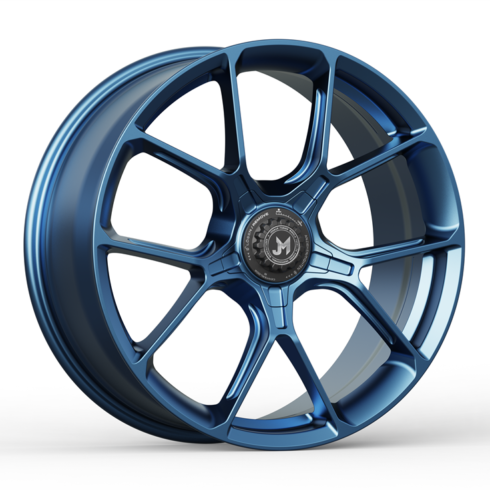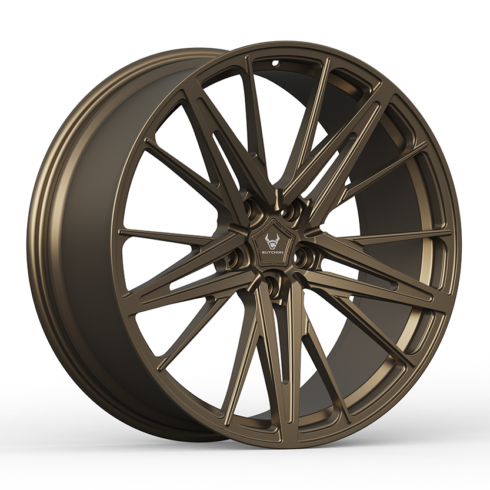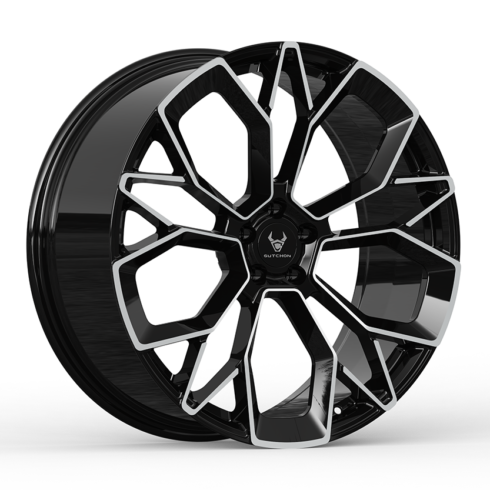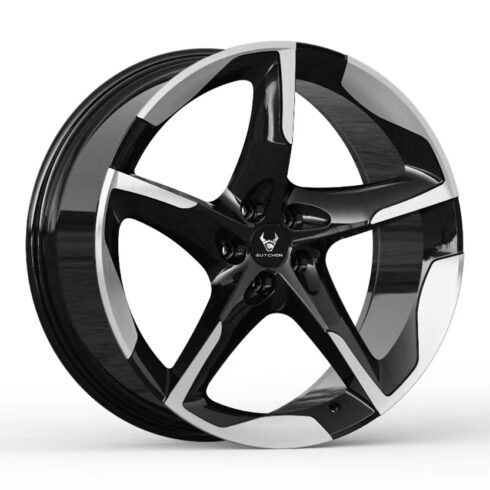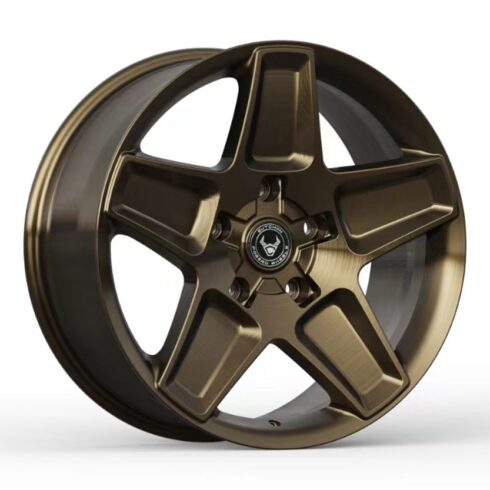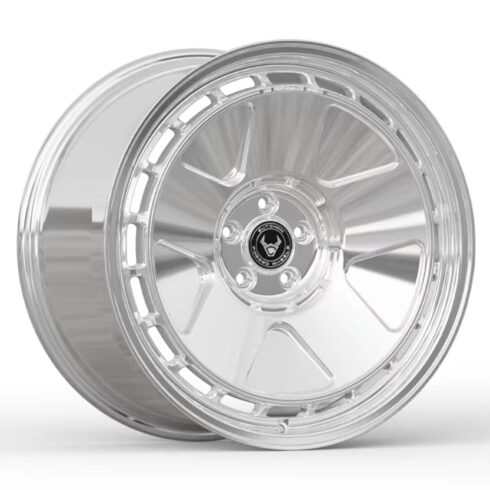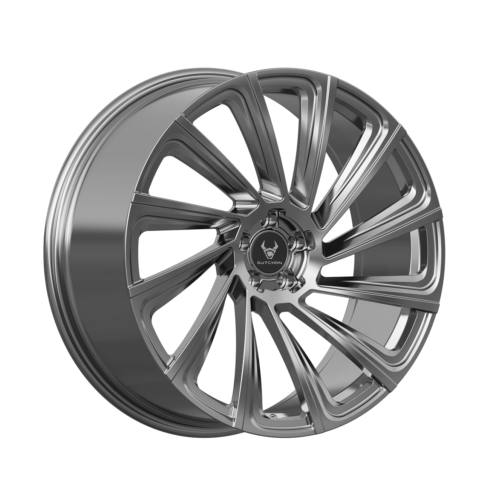Gutchon forged wheels
Forged wheels are wheels manufactured through the forging process, which allows for the maximum removal of internal air voids and cracks. Multiple forging processes are often employed to ensure the elimination of material defects, increase internal stress, improve toughness, and significantly enhance impact resistance and tear resistance at high speeds.
The manufacturing process of forged wheels involves heating an aluminum block to a specific temperature, then using a forging press to compress it into a billet, which is subsequently spun and formed. This process results in a highly dense molecular structure that can withstand high pressures. Forged wheels use military grade aluminum, making them lighter in weight. Forged wheels can be further classified as one-piece forged and multi-piece forged. One-piece forging means that the wheel is formed as a single unit, offering lightweight construction and improved reliability. Multi-piece forged wheels have separate wheel rims and spokes, allowing the customization of wheel styles by replacing spokes. Compared to one-piece forged wheels, multi-piece forged wheels are slightly heavier and have higher assembly requirements.
Advantages and disadvantages of forged wheels:
The advantages of forged wheels include high strength, increased safety, excellent ductility, lighter weight, good heat dissipation, and fuel efficiency.
Furthermore, forged wheels represent the most advanced wheel manufacturing method currently available. These wheels have approximately 1 to 2 times the strength of cast wheels and are about 4 to 5 times stronger than typical iron wheels. They are more robust, impact resistant, and exhibit superior toughness and fatigue resistance compared to cast wheels, making them less prone to crushing and fracturing. The only drawback is their expensive price tag and longer production cycle.

